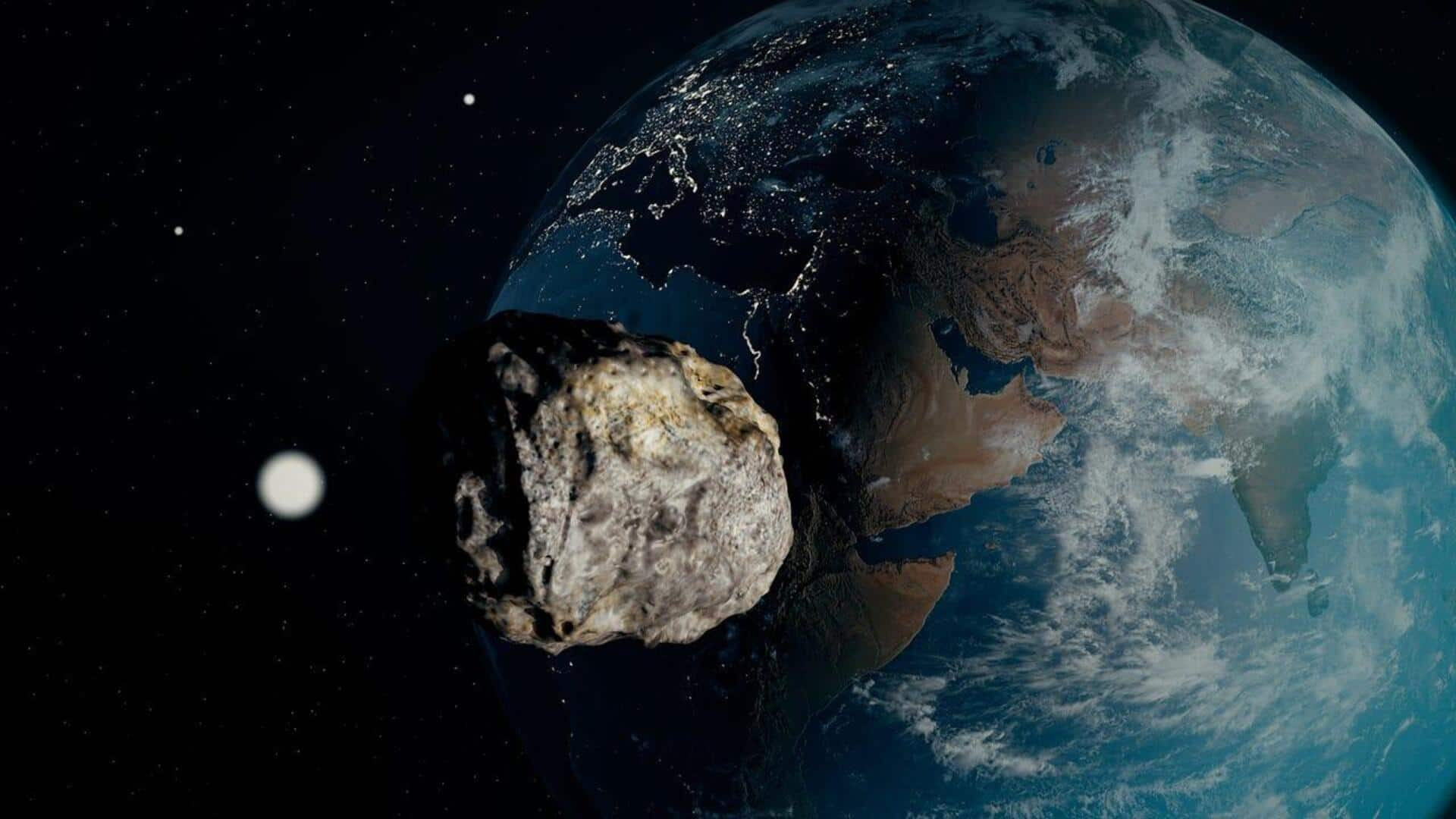
Earth's 'mini moon' is set to depart by tomorrow
What's the story
Earth's temporary "mini moon," asteroid 2024 PT5, is set to depart our planet's orbit on November 25, just two months after its arrival.
The 33-foot (10-meter) wide asteroid was discovered by NASA's Asteroid Terrestrial-impact Last Alert System (ATLAS).
While it poses no threat to Earth, the mini moon has offered valuable insight into the Moon's history.
Lunar link
'Mini moon' may have originated from the Moon
The chemical composition and rapid rotation of asteroid 2024 PT5 indicate it may have come from the Moon.
Spectral analysis has shown that its characteristics match with material collected by past lunar missions, including NASA's Apollo program and the Russian Luna missions.
This means 2024 PT5 could be a fragment of material ejected from the Moon's surface during a collision billions of years ago.
Expert insight
Asteroid's rapid rotation suggests lunar origin
Carlos de la Fuente Marcos, a professor at the Universidad Complutense de Madrid and lead author of the study on this asteroid, said there are multiple lines of evidence suggesting a lunar origin for this asteroid.
He added that current research favors its quick rotation with a rotational period under one hour.
This is to be expected if 2024 PT5 is a large boulder from the surface of the Moon or a fragment from a larger object.
Temporary stay
'Mini moons' do not remain in Earth's orbit for long
Unlike the Moon, asteroids like 2024 PT5 don't stay in Earth's orbit for long.
They are temporarily captured due to their low velocity and orbit Earth like the Moon orbits the Sun. Marcos explained that "this means that 2024 PT5's stay with Earth is short-lived."
Even though it enters Earth's gravitational field and gets temporarily caught in its orbit, it'll soon leave without completing a full orbit.
Ancient ties
Earth's connection to 'mini moon' dates back to Moon's creation
The relationship between Earth and its mini moon dates back to the Moon's birth.
As per the giant impact hypothesis, the Moon was formed after a massive collision between Earth and a Mars-sized body about 4.5 billion years ago.
The impact flung molten material into space, where it cooled and formed the Moon.
Thus, Earth is the "grandparent" of mini moons like 2024 PT5, which may have formed as part of the Moon's surface debris from ancient impacts.